Life can take us in so many different directions but what happens when you make the decision to transition to life back on the land? Whether it's your first time or you're returning to the family farm, it can be a huge challenge for our mental health. If services and support are limited, how can you ensure that you and your family's needs are taken care of? We explore this issue in episode four.
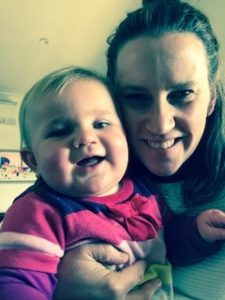
Emily Watts and Sam Weir made the difficult decision to leave their respective careers in Sydney (Human Resources and Agribusiness) to trial life on the farm. They were fortunate enough to return to a successful family farm and join forces with Sam’s parents to operate the family farming business. They have since had two beautiful children – George and Lucy.
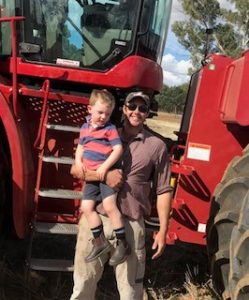
Their advice is to remain connected with your community whether that be through sport, your children or other activities; and to take breaks from the farm to give the farmer a well-earned rest!
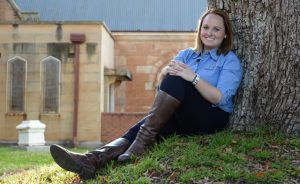 Camilla Herbig is a Rural Adversity Mental Health (RAMHP) Coordinator in western NSW, and through her role will often speak with people who have transitioned from metropolitan areas to the land; drawing upon their strengths and supports.
Camilla Herbig is a Rural Adversity Mental Health (RAMHP) Coordinator in western NSW, and through her role will often speak with people who have transitioned from metropolitan areas to the land; drawing upon their strengths and supports.
Camilla grew up on her family’s sheep and cropping farm in Central Western NSW, and upon completing her studies in the city, returned to a rural area and then a farm where she currently resides. She feels that building social connections with the community is crucial in managing the transition, whether through neighbours, local organisations such as show societies, sporting teams, or groups like churches or special-interest clubs.
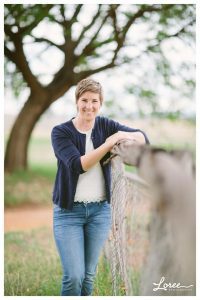 Pip Job is the 2014 National & NSW/Act RIRDC Rural Woman of the Year and is the former CEO of the Little River Landcare Group in the central west of NSW. Pip has been a beef cattle producer for 20 years and has worked in the not-for-profit sector for the last 10 years. Pip’s experience of working collaboratively with community in an agricultural context now sees her leading the Young Farmer Business Program, an initiative of the NSW Department of Primary Industries.
Pip Job is the 2014 National & NSW/Act RIRDC Rural Woman of the Year and is the former CEO of the Little River Landcare Group in the central west of NSW. Pip has been a beef cattle producer for 20 years and has worked in the not-for-profit sector for the last 10 years. Pip’s experience of working collaboratively with community in an agricultural context now sees her leading the Young Farmer Business Program, an initiative of the NSW Department of Primary Industries.
Pip’s professional career within Landcare has resulted in her being inducted into the Australian Businesswomen’s Hall of Fame and presented as the winner of 2015 NSW Landcare Facilitator Award.
Transitioning Back to the Land
Transitioning to the land from metropolitan areas comes with its own challenges. Some of the most identified problems are tackling isolation and staying connected.
You may miss the social connections that you had developed with work, friends and family; you might find that the hobbies you used to do are no longer available; or your next door neighbour might now be a car ride away, instead of in the unit next door.
What is loneliness?
Loneliness is a feeling of a lack of companionship or quality relationships with other people. Many people feel lonely at different times in their lives. Feeling lonely is a normal human emotion and is simply a sign of wanting contact with people. It is often the result of external circumstances, such as the loss of a loved one. However, feeling lonely for extended periods of time can affect your physical and mental wellbeing.
How loneliness can affect our health
There is a well-established link between loneliness and both mental and physical health. Research has found that lonely people, in comparison to their non-lonely counterparts:
- are more likely to report symptoms of depression
- are admitted to hospital more frequently
- have double the risk of obesity
- have higher blood pressure and a greater risk of heart attack.
Social connections and wellbeing
Social connections are closely tied to our physical and mental wellbeing. Having someone to talk to and support you is important. We know that older people who remain connected with others and have strong relationships are likely to:
- report better quality of life and satisfaction with their life
- have delayed progression of dementia and mental decline
- need less domestic support and enjoy greater independence
Simply put, social connections, interactions and networks matter. Overall, social connections can improve your physical and mental health and wellbeing.
Beyondblue also tells us that “There is a growing body of research in this area that indicates men aged 30 to 65 (men in their middle years) experience more loneliness and have smaller social networks than women in the same age bracket”.
What does it mean to be mentally healthy?
It means that most of the time you feel good about yourself, good about what you do, and good about others. You enjoy the simple things in life, feel fairly optimistic about the future, and are interested about what’s going on in the world.
Stress
Making a move, like transitioning to the land can be a very stressful time. Stress is a normal reaction to tough situations. In some cases, it helps us to get through a rough patch, but it is important to monitor how you are feeling. Is this stress lasting longer that you think it should? Is it impacting negatively on other parts of your life, such as eating and sleeping?
Did you know that mental health is more than just mental ill-health?
Health is a process, rather than a static state, and we move back and forth on this continuum.
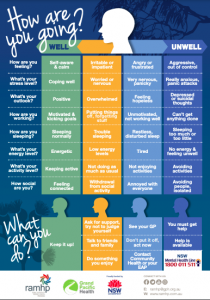
Using a tool like the How are you going tool (pictured left) can help you to check-in with how you are feeling and realise that it might be time to get some help. Have a think about where you are today.
Help services
If you or someone else is in immediate danger, call 000 or go to your nearest hospital emergency department.
If you’re concerned about your own or someone else’s mental health, you can call the NSW Mental Health Line 1800 011 511 for advice.
Having a tough time and need someone to talk to right now? The following services are there to listen and help you out. They are confidential and available 24/7.
- Lifeline – 13 11 14
- Men’s Line Australia– 1300 78 99 78
- Kids Help Line – counselling and support provided for young people (to 24 years old) who are feeling depressed, sad, or lonely – or just need someone to talk to – 1800 55 1800
- Domestic Violence Line – 1800 656 463
- Suicide Call Back Service– 1300 659 467
